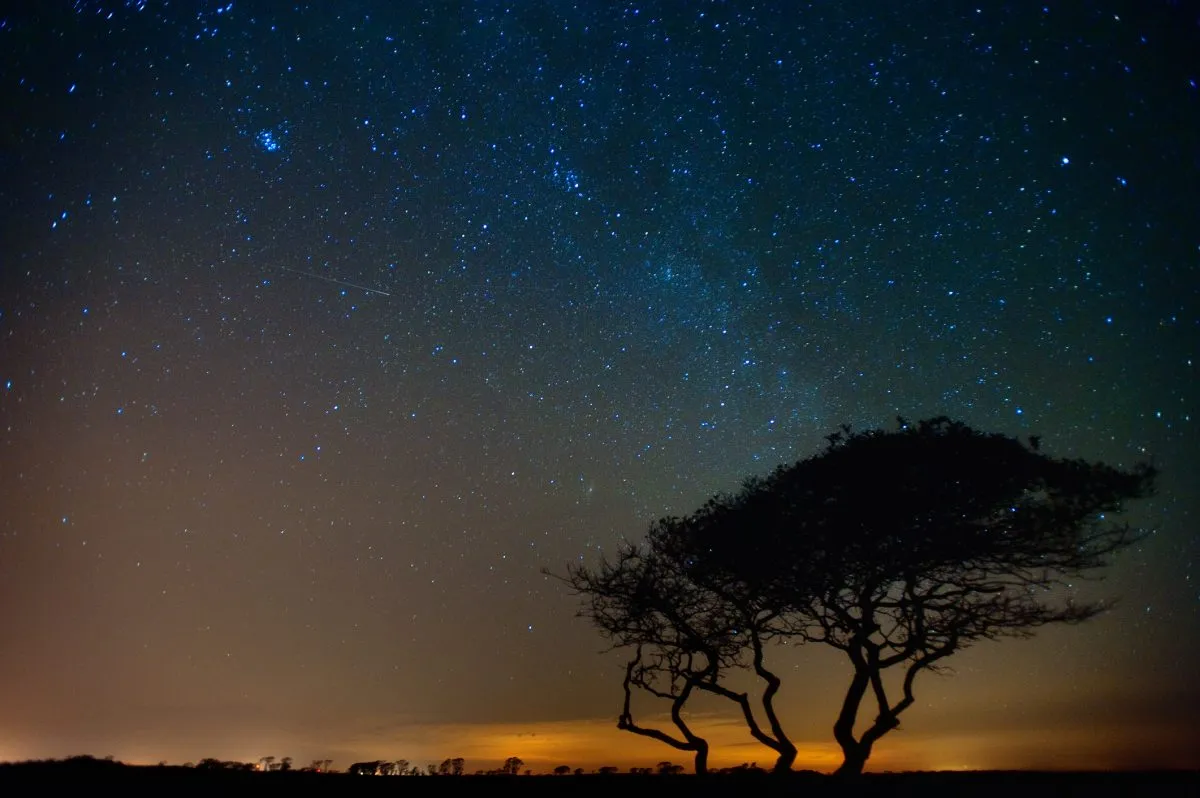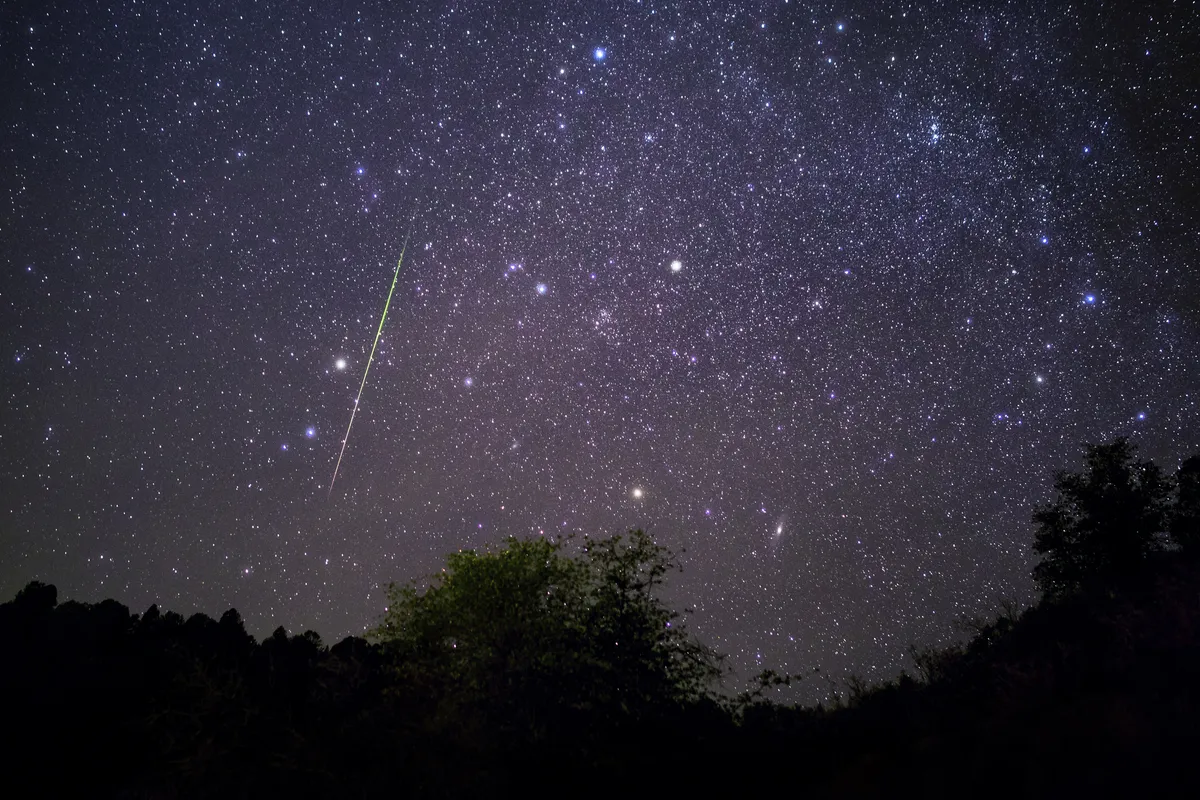Observing autumn or fall meteor showers is a great way to welcome the return of darker, longer nights and prepare for a new season of astronomy.
A meteor shower is one of the best things to see in the night sky, particularly for beginners, casual stargazers, kids and families.
Read our guides on autumn astronomy and autumn stargazing
This is because meteor showers require no equipment like telescopes or even binoculars to see.
These would restrict your field of view. To see a meteor shower you want a wide view of the night sky.
Observing meteor showers is a good group activity, as you increase your chances of spotting a meteor - or shooting star - if you're all observing a different patch of the sky
There are some great autumn meteor showers. Below is our pick of the best.
For more advice on which meteor showers occur throughout the year, and how to observe them, read our guide to the next meteor shower and our tutorial on how to photograph a meteor shower.

Best autumn meteor showers
Draconid meteor shower
Peaking on 8–9 October, expect to see meteors at a rate of around 10 per hour. Look towards the constellation Draco for the radiant.
Find out how to see the Draconid meteor shower
Orionid meteor shower
Peaking on 21–22 October, the radiant is within the constellation of Orion, rising in the east after 10pm. Expect to see around 25 per hour.
Taurid meteor shower
Also known as the Halloween Fireballs, the Taurids are visible from the end of October to the beginning of December, originating from Taurus, peaking on 12–13 November.

Leonid meteor shower
Peaking on 17–18 November, the Leonid meteor shower is one of the best autumn meteor showers and could produce some fireballs, streaking out of the constellation of Leo.
Geminid meteor shower
The Geminid meteor shower is a really impressive show of meteors that peaks on 14–15 December, producing around 150 meteors an hour originating from Gemini. The Geminids peak occurs during a new Moon in 2023, promising excellent views.
Ursid meteor shower
Ending the year, the Ursid meteor shower is sparse and coincides with a full Moon. Peaking on 22–23 December, expect to see only around 10 an hour originating from Ursa Minor.
